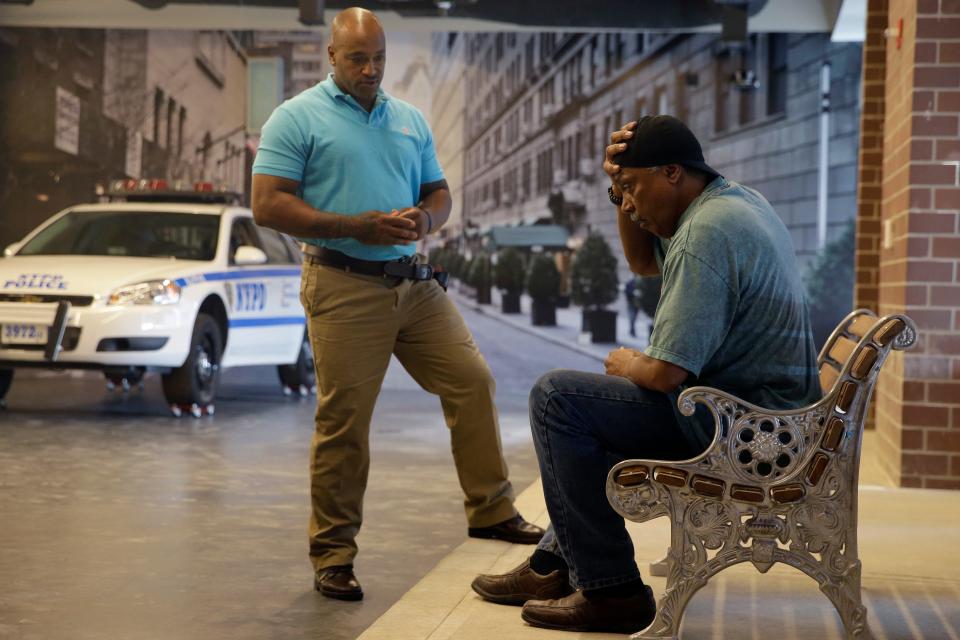NYC sent non-police teams to respond to mental health calls for a month. Data shows that more people got help and fewer were hospitalized.

NYC piloted a program that sends behavioral health specialists to respond to mental health calls.
Early data shows these non-police teams were more successful at getting patients medical assistance.
The data also shows that these behavioral health teams turned to hospitals for treatment less often.
A New York City pilot program that sends social workers instead of police officers to respond to mental health crisis calls is showing some early signs of success, according to data from the city.
The B-HEARD program - it stands for Behavioral Health Emergency Assistance Response Division - launched in a portion of Harlem last month and has sent teams of three unarmed, behavioral health specialists to respond to more than 100 911 calls.
Between June 6 and July 7, 911 dispatchers rerouted about 25% of all mental health-related calls to B-HEARD teams, according to the city's data. Once the teams arrived on scene, about 95% of the people in crisis accepted medical assistance. When there is a traditional response from police and EMS workers, about 82% of people in crisis accept help.
Video: Inside Baltimore PD's de-escalation training
The data shows behavioral health teams also were more selective about the kind of medical help offered to patients.
When responding to mental health calls, police officers and paramedics typically send 82% of patients to a hospital for treatment, according to the data. The teams of social workers only transported about half of patients to the hospital, and all of them received follow-up care. The teams also treated about 25% of patients at the scene and transported another 20% to community-based centers, according to the data.
Programs like B-HEARD have become increasingly popular in US cities in the last few years.
The programs - many of which are modeled after CAHOOTS (Crisis Assistance Helping Out On The Streets), a mobile crisis intervention unit in Eugene, Oregon - intend to better serve individuals in crisis by sending specialists who are trained in treating mental health conditions.
These programs also aim to reduce violent encounters between police and people in crisis, while easing strain on police resources. A 2015 study by the Treatment Advocacy Center found that for people with an untreated mental illness, the risk of being killed by law enforcement was 16 times higher than the rest of the population.
NYC's pilot program allowed for officers to be dispatched to a mental health emergency if there was a threat of violence or a weapon involved. B-HEARD teams requested police assistance just seven times in the program's first month, according to the data, while the NYPD requested assistance from the behavioral health teams 14 times.
Read the original article on Insider

